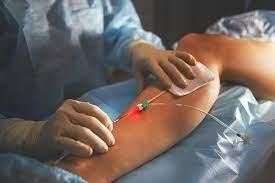What if there was no such thing as a vein clinic? It’s a question that has been on many people’s minds in recent years, as the problem of blood clots has become increasingly common. According to the American Stroke Association, about 50 percent of stroke patients will experience some form of a clot during their lifetime. If this problem wasn’t addressed early enough, it could lead to life-threatening complications. That’s where vein clinics come in. Vein clinics operate by using special ultrasound and laser equipment to scan patients for clots in their veins.
If detected, the clinic will often prescribe medications or procedures to dissolve the clot. The reality is that vein clinics play an important role in preventing stroke and other vascular problems. If you or a loved one are currently experiencing symptoms such as dizziness, confusion, or sudden vision changes, it may be time to see a Vein Clinic for evaluation.
The Problem with Vein Clinics
Vein clinics have become a staple in the medical community, and it's easy to see why. They offer a convenient way for patients to get treated for their vein problems, and they can be very cost-effective. But there is one big problem with vein clinics: they don't always work.
A study published in the journal JAMA Internal Medicine found that just over half of all patients who visit a vein clinic will not improve their symptoms after treatment. In fact, many people end up getting worse instead of better because most vein clinics rely on outdated and ineffective methods for treating veins.
Instead of relying on old methods, vein clinics should be using more modern techniques like ultrasound or laser therapy. These technologies are much more effective at treating veins and can often provide improved outcomes for patients. Vein clinics could also benefit from partnerships with hospitals so that they can offer better care to all of their patients.
The Solution to the Problem with Vein Clinics
If you're like most people, you've probably been to a vein clinic at some point in your life. The clinics offer a convenient way to get your blood checked and receive treatment for any problems with your veins. However, there may be a problem with this system.
Vein clinics are based on the assumption that people who visit them will not have access to better care elsewhere. This assumption is not always true. In many cases, people can get better care from other sources, such as hospitals or health clinics.
One reason why people might not have access to better care is that they live in rural areas or remote areas of the country. In these cases, it can be difficult for them to travel to other places for treatment. Additionally, many people who live in rural areas do not have access to health insurance or other forms of financial assistance.
There are also problems with vein clinics when it comes to treating diseases such as thrombosis or cancer. These diseases can cause blockages in the vessels that carry blood away from the heart and other vital organs. If left untreated, these blockages can lead to serious health problems or death
What to Expect at a Vein Clinic
If you're considering a vein clinic, there are a few things to expect. Generally, a clinic will offer an assessment and treatment plan for your specific medical condition. You may also need to take some tests prior to treatment. This includes blood pressure, cholesterol, and other necessary screenings.
Once you've been assessed and have a Varicose Vein Treatment plan, the clinic will work with you to develop a schedule of appointments that best meets your needs. Most clinics also offer payment plans so that you can affordably access their services.
Overall, having a vein clinic as part of your care team can be very beneficial. By taking the time to visit one, you can ensure that you receive the best possible care for your specific needs.
